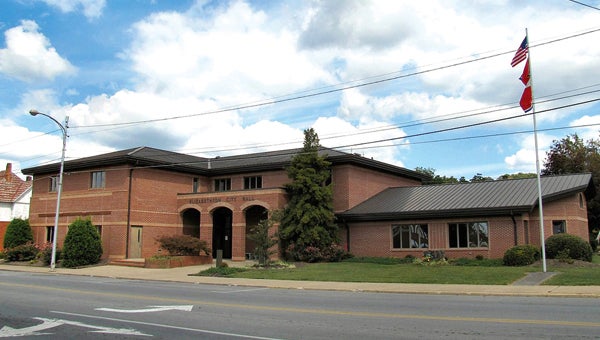Local hemp grower has high hopes for the plant
Published 8:45 am Monday, December 31, 2018
Recently, United States President Donald Trump signed into law the 2018 Farm Bill, which had a provision legalizing industrial hemp.
So, does that mean anyone can now rush out and start growing the plant?
No, it does not.
According to the Tennessee Department of Agriculture, residents of Tennessee must still go through the agriculture department and be licensed through the state’s hemp-growing program.
For 2018, according to the TDOA numbers, there are 226 licensed hemp growers in the state, and one of those growers is Carter County resident Benjamin Enkema.
Enkema, who got his license to grow hemp this year, said that his reasons for growing the plant don’t have a specific focus, but that he wants to learn as much as he can about industrial hemp and how it can be used in a “permaculture farm plan.”
Enkema considers himself to be a “pioneer” and an experimental farmer and said that venturing into the world of growing industrial hemp has opened his eyes to what the plant can offer.
“I wanted to get hands-on with it,” said Enkema. “I wanted to feel it. I wanted to smell it. I wanted to see what happens when the plant is a week old, two weeks old, six weeks old and really understand the plant.”
On his licenses listing with the Tennessee Department of Agriculture, Enkema’s reason for cultivating hemp is for its oil which is high in CBD concentration. CBD is one of 113 cannabinoids that can be found in hemp and is said to have many medicinal properties. CBD has risen in popularity recently and hemp has picked up some of the limelight as well.
Many people confuse hemp and marijuana which comes from the same plant family. Now, marijuana also contains CBD as well a high concentration of the compound THC, which is what gives its users a “high” feeling. CBD doesn’t have any known psychoactive properties. Hemp, like its illegal cousin, has traces of THC but they are very small and the legal limit of THC in hemp in the state of Tennessee is 0.3 percent.
A majority of Enkema’s time is spent caring for his mother, Patricia Ann, who is in the late stages of Parkinson’s disease.
“Mom has had Parkinson’s since 1988, and she has treated it primarily with diet and lifestyle,” said Enkema. “She has stayed off of prescription medication for years now.
“The CBD promises calming and pain relief,” added Enkema.
Enkema went on to say that CBD oil has had a positive effect on his mother’s symptoms. Enkema gets the CBD out of the hemp through a method of using the olive-oil method on a stove top.
“You simply crush your dried hemp real fine into a pot with 50-50 olive oil and water,” said Enkema. “You keep it below 300 degrees and stir it on medium-low until the water has evaporated. Once that happens, you are done. You have dispensary quality CBD oil.”
Enkema grows his hemp in a high tunnel system, which is also known as a “hoop house.” Enkema acquired his high tunnel system through the United States Department of Agriculture High Tunnel System Initiative. According to USDA high tunnels, “extend the growing season, improve plant quality and soil quality, reduce nutrient and pesticide transportation, improve air quality through reduced transportation inputs, and reduce energy use by providing consumers with a local source of fresh produce.”
Enkema said that he has grown roughly 2,000 to 3,000 hemp plants. One of the things that Enkema has tried with his plants is to distill them into water with a copper still.
“One of the most exciting results was distilling,” said Enkema. “I found out that just a small water distillate of young hemp is delicious. It is hands down a very simple thing. It is hemp water.”
Enkema said he hasn’t had the water tested to see if it had a high level of CBD, but that testing it for CBD content is something he would like to do. In the future, Enkema said he hopes to grow industrial hemp on 20 acres at his family farm in Carter County.
According to the Tennessee Department of Education, the recently signed Farm Bill will now allow hemp growers to sell across statelines widening the market for hemp.
The application period for growing hemp in the state of Tennessee is open through February 15, 2019.
For more information about hemp growing in Tennessee, visit www.tn.gov/agriculture.







